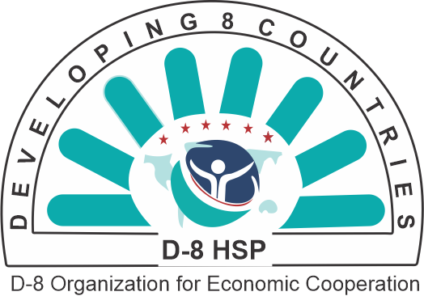D-8 HSP Marks 2024 World Health Day with a Call for Inclusive Health
The D-8 Health and Social Protection Programme (D-8 HSP) today commemorated World Health Day under the impactful theme “My Health, My Right,” emphasizing the critical need for universal health coverage and inclusive health outcomes across its member states. In an era where health disparities continue to challenge communities worldwide, the D-8 HSP’s mission to ensure equitable health access for all has never been more pertinent. The call is in line with the D-8 HSP mandate to improve the health and well-being of citizens of its member states. D-8 HSP calls on health departments and sectors of Member states to focus on enhancing health services to bridge the gap in healthcare provision, focusing on vulnerable populations and ensuring that no one is left behind in the quest for health equity.
“Today, as we observe World Health Day, we are reminded of the fundamental principle that health is a universal right, not a privilege,” stated Dr. Ado J. G Muhammad, Global Director of D-8 HSP in Abuja, Nigeria. “Our collaborative efforts within the D-8 community are geared towards realizing this right for every citizen, ensuring that comprehensive health services are both accessible and affordable,” Ado said. The D-8 HSP’s strategy includes promoting innovative financing strategies for the health of member states, trade in health in a way that people can access better care, live healthier lives, and reach their full potential, and data for performance and impact to shape health policies and outcomes. Additionally, the program works to foster partnerships with international health organizations to leverage expertise and resources, enhancing the quality of healthcare delivery in member countries.
Highlighting the importance of social protection, D-8 HSP is strategically developing new initiatives designed to support individuals and families affected by health-related financial hardships. These include the Umma Zakat Foundation (UZF), the expansion of health insurance to the poor and needy, and the introduction of social safety nets to mitigate the economic impact of illness and disease.
In a world still navigating the aftermath of the global pandemic, the D-8 HSP’s focused approach to inclusive health results and outcomes resonates strongly with the global call for health equity. By placing the right to health at the forefront of its agenda, the D-8 HSP focuses on inspiring change, driving progress, and contributing significantly to the global health landscape. As the D-8 nations come together in solidarity on this World Health Day, their unified message is clear: achieving health for all is not just a goal, but a right that requires our collective action and commitment.

